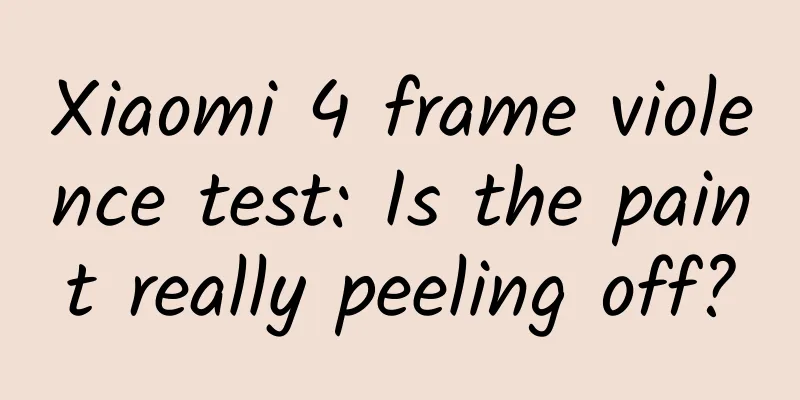Why is China's Internet frequently integrating and ruining its own future?

|
58 merged with Ganji.com, Alibaba acquired Youku Tudou, Meituan merged with Dianping, Ctrip merged with Qunar, BAT stopped external recruitment while making large-scale acquisitions, and Baofeng Technology laid off a large number of employees... How should we interpret this series of hot events in China's Internet? There are many micro reasons. But if we look deeper, my answer is that after 21 years of ups and downs, China's Internet industry has finally reached a very obvious bottleneck and is facing a revaluation. Its future will depend on whether it can smoothly integrate with the real economy. Why do Internet bottlenecks occur? Chinese Internet companies have attracted global attention. Their scale and reputation are mainly based on the following three basic points: 1. The soil of China's economy, especially China's huge real economy foundation. This is the most fundamental but easily overlooked force; 2. China's entire informatization process and rich demographic dividend; 3. The Copy To China model and the role of overseas capital. Almost all Internet companies in China can find their prototypes overseas, and initially liked to label themselves as "China's X." Most of them were initially born out of overseas capital. The emergence of China's Internet bottleneck is precisely related to the following aspects: The macro reasons are obvious to all. After the outbreak of the financial crisis in 2008, compared with traditional industries, Internet companies seemed to be doing well, but there was a "false prosperity" element in it. Capital moved away from real industries and flocked to the Internet. Internet concepts proliferated, but there was a lot of false enthusiasm. When the real economy entered a continuous adjustment cycle, China's Internet continued to stage all kinds of madness. Seven years have passed, and the real economy has not turned around. Capital has finally realized that its demands must be based on the prosperity of the real economy, and it has begun to express caution towards the Internet. Some Internet companies that were originally highly valued have suddenly become less popular when they asked for money over the past six months. The previously highly sought-after Chinese concept stocks, following the "trust crisis" in 2009, are once again facing short selling and questioning by overseas institutions. Two major dividends face temporary cooling Over the past 21 years, China's Internet industry has grown rapidly, mainly based on China's huge manufacturing industry and demographic dividend. Alibaba is the biggest beneficiary of these two dividends. In 1997, it started as a B2B company, serving China's manufacturing industry, which was in urgent need of overseas channels. In 2004, Alibaba began to strengthen its C-end layout to reach the end consumers. The rise of Taobao is an important reason for Alibaba's move towards scale. More Chinese Internet companies are expanding in scale and quantity, and are burning money crazily in exchange for traffic and GMV. This includes the later-rising Dianping, Meituan, and Didi Kuaidi. Their basic demands can be seen from the keywords of this period - traffic, traffic diversion, traffic diversion, and GMV. For those Internet companies that are constantly raising funds or IPOs, the dimensions and methods of valuation are more straightforward. They are indeed based on the huge number of enterprises and the public in China's informatization process over the past 20 years. But both dividends are facing a temporary cooling. China's manufacturing industry, especially C-end enterprises, has long been Internet-based in terms of ERP, management methods, and sales, especially online channel layout has long been popular. The number of merchants on e-commerce platforms such as Alibaba is unlikely to have the same exponential annual growth as in the past. At present, the difficulties faced by the manufacturing industry are structural adjustment, transformation and upgrading, which involve the original innovation of the entire industrial system. The Internet is essentially a tool and can't help at all in the original innovation of the manufacturing industry. For example, Intel can use Internet tools to promote research and development, but the process of micro-chips still needs to go deep into the microscopic atomic world. The same is true for China's manufacturing industry. Many Internet entrepreneurs cannot see this and think that "Internetization" is not enough. Revolutionary and subversive arguments emerge in an endless stream, and even ignorant remarks about "de-manufacturing" have been made. The demographic dividend is facing exhaustion. China has nearly 700 million Internet users, which seems to account for only 50% of the total population, but if we analyze the structure and distribution, it is almost close to 90% of the urban population, making it more difficult to increase the number of Internet users in the future. This means that the first wave of large-scale informatization is coming to an end. The new round of informatization will go deeper, and it will face tough challenges: industrial Internet, service industry informatization, Internet and agriculture, middle-aged and elderly society and Internet, etc. The term "Internet" is correct, but we cannot raise the Internet to the level of the world. In fact, the new round of informatization should also have an "Internet" posture. Crisis and mergers The exhaustion of the two dividends has led to crisis signs in Internet companies. By the way, let me mention two things that happened in the spring of 2015 - they should be counted as one thing: Alibaba and Baidu exchanged fire with Fujian's manufacturing industry and medical industry respectively. Alibaba was mainly involved in the problem of counterfeit goods, and Baidu was involved in fake medical treatment. Although the source was offline, the topic was related to the phantom traffic in the Internet industry. Many bad merchants relied on traffic tactics to obtain a lot of illegal income, and the crisis was still detonated on the platform. When the O2O craze emerged, Alibaba and others felt a greater sense of crisis. In the past, e-commerce mainly sold goods, but the essence of O2O is the informatization of the service industry, which must be operated in regions, local areas, and business circles. Alibaba and others' past standardized online strategy, which was unified across the country, was not suitable for this new trend. Moreover, O2O is also the informatization of the whole society, which is much deeper than concepts such as e-commerce and social networking. Of course, the development resistance is also great. Some companies, such as Dianping, have not made a profit after more than 10 years of hard work. Therefore, although O2O has attracted strong attention from capital and high-value fundraising cases have continued, this field has also had the most death cases. There is a list of O2O deaths in the first half of the year, which truly reflects the crisis of the industry. Burning money is not scary, but what matters most is what is precipitated, retained, and transformed after the money is burned. The war of thousands of group buying companies burned tens of billions, and only two or three group buying companies remained, and they are not profitable yet. The merger of Meituan and Dianping is a helpless move; the emerging mobile travel industry, with nearly 10 billion yuan in subsidies, only resulted in a merger. No matter how high the valuation is, it is just a phantom world created by capital, and it is unsustainable. When the capital market encounters difficulties, the bubble will of course burst. The Internet will rise only when the real economy is booming The current Chinese Internet industry seems to be facing a thick glass wall. Although we can see the beautiful world, we cannot break through it for the time being. In my opinion, one of the reasons why the sense of crisis in China's Internet industry is increasing is that the pure Internet approach is no longer effective. The Internet industry must change the path of overdrawing the soil of the real economy and overdrawing the demographic dividend in the past, lower its posture, operate on the ground, and participate in the transformation process of the real economy. Those Internet companies that stick to their posts and wait, except for pure technology companies, will not have much of a future even if they do not die for the time being. I always hold this view: the Internet is not a substance, it is a tool, a condensation of the new cultural movement, a spirit of openness and freedom. The development of the Internet has always been based on the development of the real economy. In the past 21 years, the reason why China's Internet has become a dazzling landscape in the global Internet industry is mainly due to the support of the Chinese economy. Only when the real economy rises can the Internet rise. Today, China's real economy is facing great challenges. The development model and path formed over 30 years of reform and opening up are facing adjustments. Traditional enterprises, especially manufacturing, need to turn back, pay the tuition, and complete a round of original innovation. Even if China's Internet industry has not encountered macro-economic challenges, this round of large-scale integration, mergers and acquisitions, and marriages will definitely occur. It is just a matter of time. It should be said that the continued economic downturn has accelerated this process. In my opinion, this is also the tuition fee that China's Internet industry needs to pay. In the past 21 years, our Internet companies have mainly copied to China, copying the American model. Capital combined with China's vibrant real economy and various dividends has collided with brilliant sparks, but with the excessive, rapid and intense burning of capital, there will definitely be collapse and blood loss. Only by getting out of the separation and fully integrating with the real economy can the Internet achieve endogenous growth. For specific companies, whoever can embrace the real economy as soon as possible will gain the upper hand in the next cycle. New space for “ecological counteraction” It is unrealistic to expect that China's real economy and Internet industry will flourish overnight. But I am always confident in China's new economic model in an era of great integration. I think that the diverse culture, the still huge population base, the vast territory, the complexity of the industry, the structural differences, the rich offline life scenes, and of course the long-term reform dividends will definitely create more opportunities for the power of the Internet to integrate. In fact, this is also a common challenge faced by many countries and regions around the world. We have seen that Facebook and IBM are laying off employees on a large scale. Germany, the United States, and Japan are beginning to rethink the future of manufacturing. Industry 4.0 and the Industrial Internet are seen as new paths, which are the integration models of the real economy and the Internet. China has also issued a similar 10-year plan. Although it seems to have lost some of its momentum in the face of the past wave of Internet craze, the trend of great integration is inevitable under the crisis. ***Let me make a bold prediction: Currently, we are mostly seeing integration cases within the Internet industry and traditional industries. In the future, there will definitely be large-scale integration cases between the Internet industry and physical enterprises, especially the manufacturing industry. If the Internet industry wants to truly become a part of the infrastructure of the entire economic life, it must lower its posture, actively break the binary structure of separation with the physical world, and reshape a new business model. I believe that this process contains the real great power, and it must also be an opportunity for our Chinese economy to truly achieve transcendence. In terms of various market elements, which country in the world is richer than China, and has greater space for "ecological reaction" (a term coined by LeEco, referring to the chemical reaction of the entire ecology formed through cross-border integration)? The frequent consolidation of the Internet industry is not only an action for the self-repair of the Chinese Internet industry, but also a precursor for the self-balancing and future-seeking of the entire Chinese economy. |
<<: A day in the life of a technical manager at Google
>>: Google returns to China with these four points to make you buy in, are you willing?
Recommend
Are you more suitable for drinking milk or soy milk? 10 similarities and 10 differences between them
The Chinese Dietary Guidelines 2022 recommends dr...
Why do Intel and AMD's new generation processors only support Win10?
When the Skylake Core processor was released, Mic...
[Smart Farmers] Named after "Beauty"! Uncovering the secrets of the "civil and military" canna that migrated from the tropics
Canna is a perennial bulbous flower of the genus ...
Is it easy for Douyin stores to get orders? Is it easy for Douyin stores to get orders?
Many merchants who have opened Douyin stores are ...
Baidu Information Flow 11.11 Marketing Manual!
How is the traffic trend of Baidu Information Flo...
Mazda to launch new energy vehicle series from 2021
According to overseas media reports, Mazda offici...
Getting Swiss watches into trouble: Did Apple pick the wrong target?
As Apple's new product launch on September 9 ...
What is Douyin’s Blue V certification? What is required for Douyin Blue Micro Certification?
What is Douyin’s Blue V certification? What is re...
The real reason why the Apple iPad fell out of favor
Recently, Apple's iPad tablet sales have been ...
Tik Tok trending searches challenge Weibo's "advertising board"
Tik Tok’s trending searches are becoming more and...
Different drugs require different infusion sets - today we will take a look at the infusion set family
The disposable infusion sets commonly used in cli...
What is a "leopard print mango"? Can it be eaten? Can it be sold?
Recently someone recommended me a new thing calle...
Richard Foster: Barbarians in the field of new energy vehicles represent the future. Innovation is the way for autonomous driving to survive.
In recent years, with the recognition of the ener...
University of Toronto: Study finds intermittent fasting may not be as safe as we thought
A recent study published in the journal Eating Be...
Zhaoqing Mini Program Development Company, how much does an electrical mini program cost?
How much does it cost to attract investment throu...









